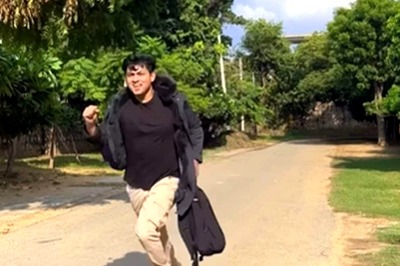
views
Hong King: Terrorism will cast a continuing shadow over future generations and government electronic surveillance is a small price to pay to combat it, a leading historian said Wednesday, a day after the carnage in Brussels.
British author and journalist Sir Max Hastings gave a robust defence of electronic intelligence-gathering in what he called a new world that would never know absolute security.
"Our tolerance of electronic surveillance, subject to legal and parliamentary oversight, seems a small price to pay for some measure of security against threats that nobody - today of all days - can doubt are real," Hastings told Hong Kong's Foreign Correspondents' Club.
Twin attacks by Islamic State jihadists killed around 35 people in the Belgian capital Tuesday.
Hastings, a former war correspondent and newspaper editor, is author of 26 books mostly on military history.
His latest, "The Secret War", tells the story of behind-the-scenes intelligence operations in World War II.
Future wars "will almost certainly" be fought on similar turf.
"Whereas a few generations ago our forebears were defended by Spitfires and citizen armies, today intelligence services and eavesdroppers at GCHQ are at the front line against our enemies."
Britain's Government Communications Headquarters monitors vast amounts of email and other electronic traffic in search of suspicious communications.
Hastings said he found it "almost incredible" that civil libertarians objected so strongly.
"Personal liberty never has been and never can be an absolute," he said, adding a balance must be struck between individual rights and the need to protect society.
In Britain's case, electronic interception was the only major way to detect terrorists.
"It is almost impossibly difficult for agents to penetrate Muslim communities in Britain and MI5 (the domestic intelligence service) receives dismayingly little help from them."
The detection of 20-30 major plots in Britain in the past decade came overwhelmingly from electronic interception, Hastings said.
Whistle-blower Edward Snowden, the former US National Security Agency contractor who spilt a huge trove of secrets on global surveillance programmes, had done great harm, he said.
There was clear evidence since the revelations that terrorists were using much more sophisticated encryption systems.
Rather than electronic snooping, Hastings said he was far more worried about the use of drones and targeted killing by the US, Britain and Israel.
"It's a very, very dangerous business to delegate to government (the power) to act unilaterally without any judicial process at all to just kill whoever they feel like."



















Comments
0 comment